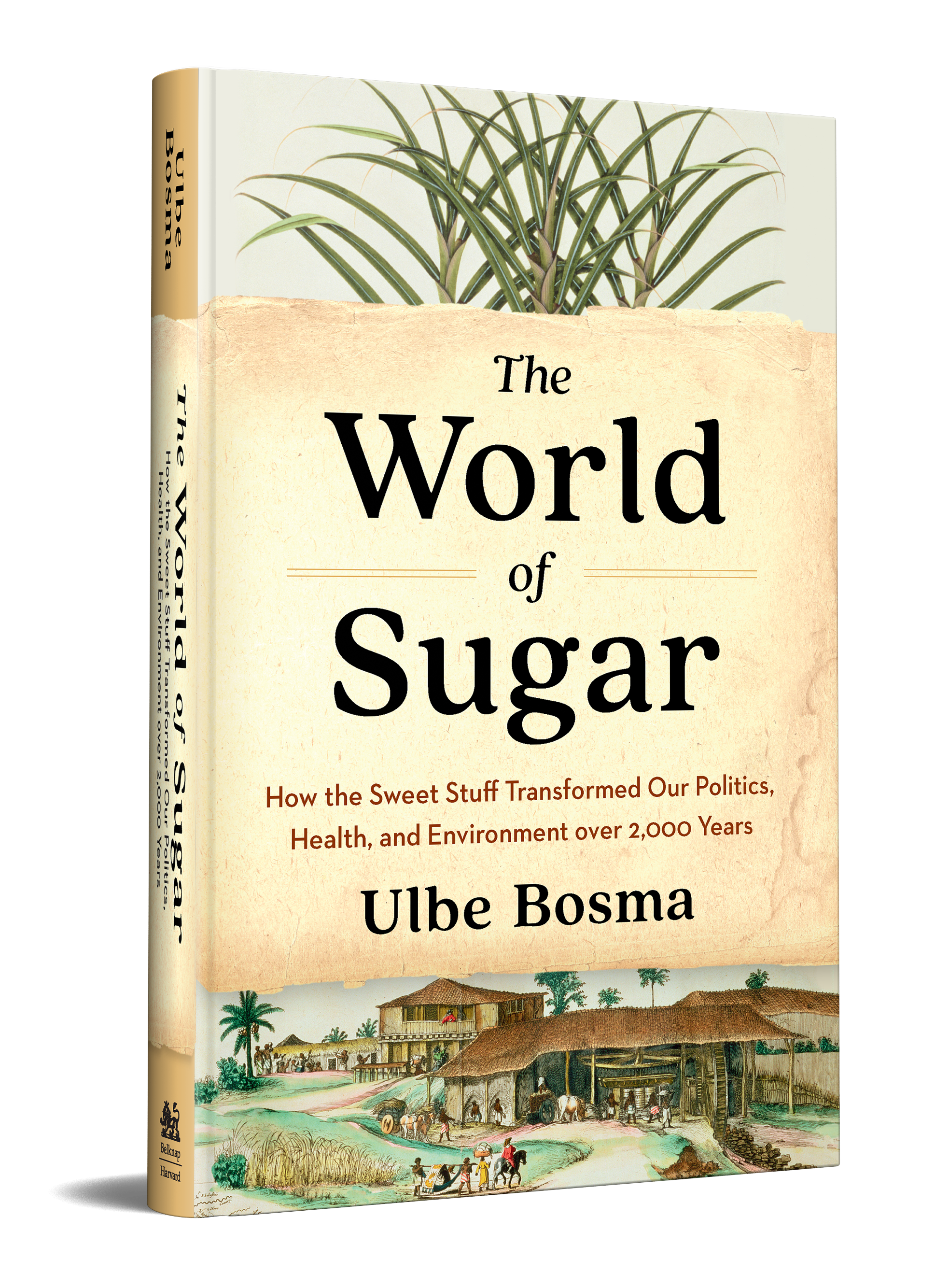Publication The World of Sugar
With major consequences: large-scale plantation slavery and forced labour, massive environmental damage and a now uncontrollable obesity pandemic.
All this happened with a product we don't actually need. In fact, for most of its existence, humanity has done just fine without it. The precious white crystals were originally found only in the courts of Rajahs, emperors and caliphs. Only gradually did cane sugar culture spread to India, China and the Arab world. Then Europe made sugar the driving force behind slavery: about two-thirds of the 12.5 million Africans shipped across the Atlantic ended up on sugar plantations. Dutch sugar traders and refiners, by the way, played a central role in this history, this book shows. From the horrific conditions under which people worked in slavery on sugar plantations came a call for freedom that still resonates today.
Meanwhile, in many countries, sugar consumption is twice as high as the World Health Organisation deems responsible. This is not the result of individual choices, Bosma argues, but the result of systematic subsidisation and protection of the sugar industry over the last 150 years. After all, sugar was a cheap way to provide calories to workers. Obesity was born out of poverty.
The World of Sugar is a landmark of global history. It is also the result of a consistent choice by the International Institute of Social History (IISH) to approach major social issues from a global history perspective. In doing so, the institute draws on its internationally renowned archival and library collections.
The World of Sugar is the life's work of a historian who has already published a large number of books and articles with renowned publishers and in top international journals. He paints a revealing picture of how crucial sugar was in the creation of the modern capitalist global economy. Precisely because of the huge economic stakes involved in sugar, it will be very difficult to reduce the current overproduction and overconsumption.
“This book is a tour de force of global history, one that helps us better understand the genesis of both modern capitalism and globalization.” Dinyar Patel, Los Angeles Review of Books
“Bosma lucidly depicts how a commodity… was central to the development of European imperialism, transatlantic slavery, the Industrial Revolution, economic protectionism, and the postcolonial politics and environmental degradation of the Global South… This is a comprehensive and alarming look at how one commodity changed the world.” Publishers Weekly



